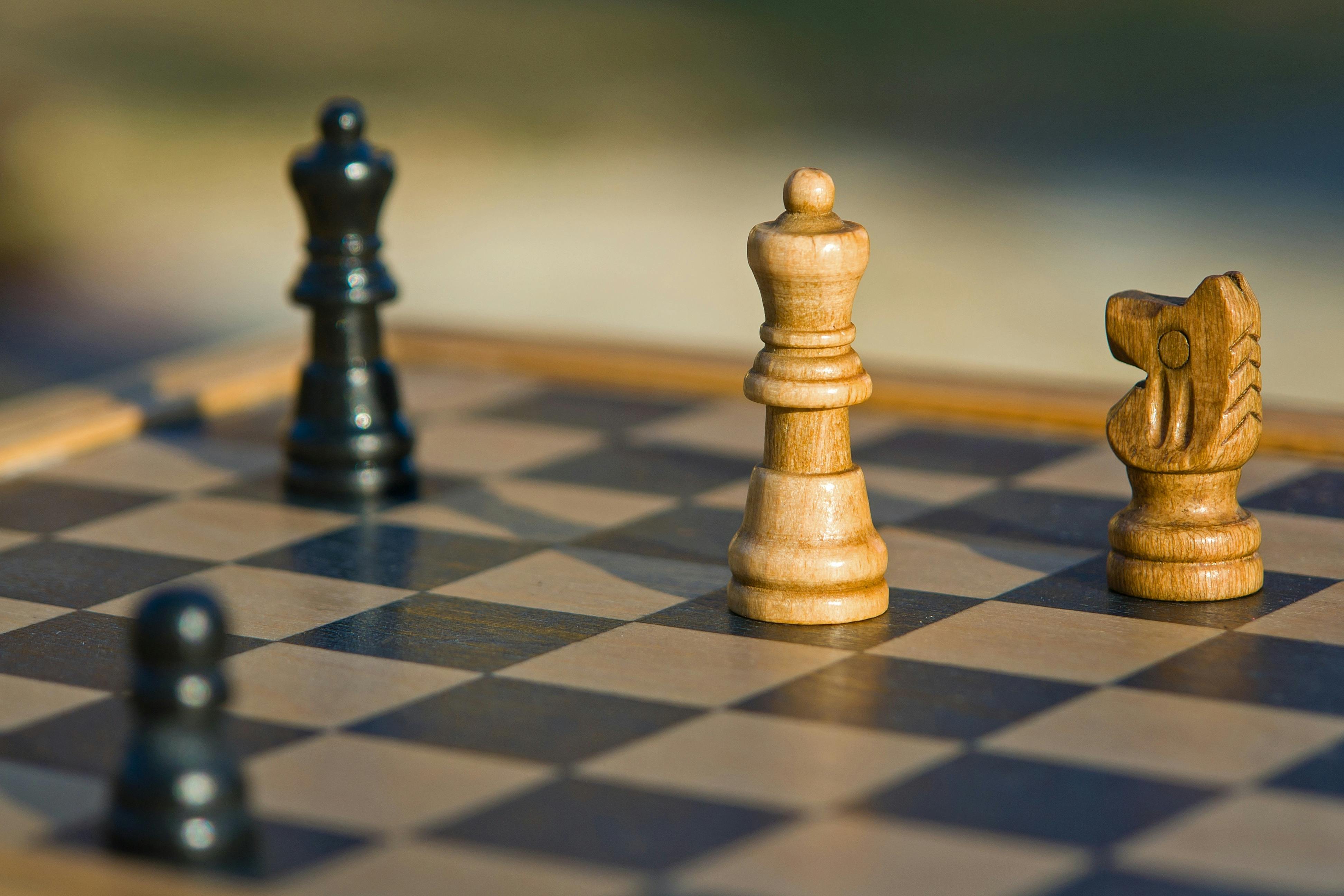Iconic Chess Champions Who Transformed the Sport
Wiki Article
Why You Must Play Chess: The Benefits of Participating In This Timeless Pundit Challenge
Chess is greater than an easy video game; it works as a strenuous mental workout that develops various cognitive skills. Gamers participate in tactical reasoning and establish analytic capabilities, which can have long-term benefits in day-to-day life. The discipline needed for improvement cultivates persistence and durability. The real essence of chess exists not simply in its intellectual demands however in the links it promotes within a community. Checking out these measurements discloses much about why chess remains classic.Enhancing Cognitive Skills
Playing chess significantly boosts cognitive abilities, making it an important task for individuals of all ages. The game demands critical thinking and foresight, needing gamers to expect their challenger's relocations while creating a winning strategy. This mental exercise hones emphasis and concentration, important elements of cognitive feature.
Chess urges creative thinking, motivating gamers to check out ingenious strategies and unique techniques to the game. As they navigate the chessboard, individuals establish perseverance and durability, essential characteristics for cognitive growth. On the whole, the multifaceted cognitive advantages of chess make it an improving search, advertising lifelong imagination and intellectual interaction.
Increasing Problem-Solving Abilities
Various studies have revealed that involving in chess can substantially increase analytic capacities. The video game needs players to assess complex placements and expect the opponent's actions, promoting crucial believing skills. As they browse different scenarios, chess gamers develop the capability to examine multiple outcomes and make critical decisions under stress. This process boosts their ability to method real-life issues with a structured frame of mind.In addition, chess promotes the identification of patterns and the application of rational thinking, skills that are important in reliable problem-solving. Gamers learn to analyze risks and benefits, fine-tuning their judgment in uncertain circumstances. The repetitive nature of chess play strengthens these abilities, permitting people to move their enhanced analytical capacities to academic and professional contexts. Eventually, chess acts as a useful device for anyone seeking to sharpen their analytical skills and improve their general cognitive performance in tough scenarios.
Cultivating Persistence and Discipline
While engaging in chess can be an exciting experience, it also requires a significant level of perseverance and technique. Players must find out to meticulously consider each relocation, weighing possible outcomes and strategies. This thoughtful approach promotes an attitude that values long-lasting success over immediate gratification. In chess, hasty decisions often bring about negative consequences, reinforcing the importance of taking one's time to assess the board and expect an opponent's actions.
Self-control is more cultivated via constant practice and research. Players usually dedicate hours to enhancing their abilities, examining strategies, and examining past video games. This commitment to grasping the game imparts a sense of obligation and perseverance, essential attributes that prolong beyond the chessboard. Inevitably, the mix of persistence and discipline not just boosts a gamer's chess abilities however additionally adds to personal growth, furnishing people with important tools for navigating obstacles in various aspects of life.
Promoting Creativity and Creative Imagination

Planning actions includes not just logic however additionally the ability to anticipate an opponent's reactions, urging players to picture several paths and options. As gamers trying out various methods, they discover to introduce and adapt, improving their innovative analytical skills.
Moreover, the game's complexity welcomes gamers to explore non-traditional concepts and methods, causing personal styles of play. This exploration supports a sense of artistic expression, as each player crafts their very own approach to obstacles on the board. Inevitably, chess ends up being a canvas for creativity, permitting people to share their one-of-a-kind point of views while developing their imaginative abilities
Structure Social Connections and Community
Playing chess supplies chances for individuals to network via competitions and local chess clubs. These atmospheres foster connections amongst players, creating a sense of neighborhood focused around learn this here now a common enthusiasm. Involving in these tasks not only improves skills yet additionally builds long lasting relationships.Networking Via Tournaments
When participants participate in chess events, they usually find themselves immersed in a vivid area of similar people. These occasions supply an exceptional platform for players to forge links, share approaches, and celebrate their interest for the game. Taking part in pleasant competitors cultivates camaraderie, as gamers from varied histories come with each other to challenge each various other. Networking possibilities abound, with lots of participants creating lasting relationships that prolong past the chessboard. Furthermore, these tournaments typically draw in enrollers and chess lovers, even more boosting the possibility for specialist links. As players participate in discussions about methods and experiences, they develop a network that can cause future partnerships and opportunities within the chess globe and beyond.Local Chess Clubs

Offering a Fun and Engaging Difficulty
Chess supplies a distinctively promoting experience that captivates players of all ages, as it integrates critical reasoning with the excitement of competition. This classic video game provides a compelling difficulty, motivating individuals to believe seriously and creatively. Each match unfolds as a battle of wits, where players must expect their challenger's actions while designing their own strategies.The intellectual engagement chess supplies is matched by its ability to amuse. Players usually find themselves immersed in the video game, misplacing time as they navigate intricate positions and tactical issues (Chess). This enhanced emphasis cultivates a sense of accomplishment, especially when a tough move leads to triumph
Chess promotes social interaction, permitting players to bond over shared experiences and obstacles. The video game's countless variations assure that no two sessions are alike, keeping participants passionate to refine their skills and methods. This dynamic blend of obstacle and pleasure makes chess a tempting quest.
Regularly Asked Concerns
Can Chess Be Played Online or face to face?
Chess can be played both online and face to face. Online systems offer gamers the benefit of competing versus opponents worldwide, while in-person video games promote social communication and physical presence, enhancing the total experience.What Age Is Ideal to Beginning Learning Chess?
Professionals suggest that youngsters can begin learning chess as very early as age 5 or six. At this age, they can understand basic concepts, boosting cognitive skills while promoting a love for the game that lasts a life time.Exist Chess Tournaments for Beginners?
Yes, there are chess events specifically made for newbies. These events offer an encouraging atmosphere for newbie gamers to obtain experience, enhance their skills, and delight in the affordable spirit of chess without encountering advanced opponents.The length of time Does It Require To Come To Be Skillful at Chess?
Coming to be skillful at chess generally needs constant practice over several months to years. Variables such as individual devotion, previous experience, and study of approaches go to this website greatly affect the time required to get to a qualified degree.What Resources Are Offered for Understanding Chess Approaches?
Numerous resources exist for finding out chess strategies, consisting of on the internet tutorials, publications by prominent authors, chess apps, and interactive web sites. Numerous gamers additionally benefit from joining regional clubs or taking part in online discussion forums for real-time insights.Report this wiki page